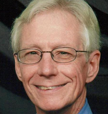If you are Episcopalian, liturgy is a big deal. Some in the church are still mad that the Book of Common Prayer, first composed by Henry VIII’s archbishop in the 16th century, was modified about 30 years ago.
Last week the General Convention of The Episcopal Church, meeting in Indianapolis, approved a liturgy to bless the unions of same-sex couples. The approval had several caveats attached. It is unofficial for now, and no priest or bishop can be coerced into presiding at such a ceremony against his or her conscience.
Since the liturgy can only be used in a diocese by permission of the bishop, it’s a good bet that Episcopal same-sex couples will not have their unions blessed in Florida unless they travel to Miami. More about that in a moment.
But despite the conditions, the Episcopal Church, the denomination of most of our Founding Fathers, is now the largest church in the United States that allows priests to solemnize same-sex unions.
The vote was never really in doubt. Conservatives who oppose the liberalization of policies about the role of gays and lesbians in the church have mostly left the American Episcopal Church, forming independent groups or aligning themselves with more traditional Anglican churches overseas. Those who are left are fighting a rearguard action.
Three of the four Episcopal bishops of Florida voted against the new liturgy, but their reasons are an indication of how weakened the traditionalists have become.
Bishop John Howard of the Diocese of Florida, which is based in Jacksonville, said the new liturgy was “simply not necessary” because such blessings were already being performed unofficially. Bishop Dabney Smith of Southwest Florida told his diocese after the vote that he would consider it carefully in conjunction with lay leaders and priests. Not exactly Martin Luther’s “Here I stand, I can do no other.”
Bishop Gregory Brewer of Central Florida, who succeeded John Howe in March, said during debate that the measure would put Anglicans in countries with strict sexual mores at risk, which is a pretty hypothetical argument. He did join 13 other conservative bishops in signing a statement of dissent that opposed the new liturgy on biblical and historical grounds, but he was the only Florida bishop to do so.
Brewer is following the lead of his predecessor. Howe took a polite but firm and carefully articulated stand for a traditional view of sexual relations, despite presiding over a diocese based in Orlando, which has the largest gay population in the country outside New York. Howe and Smith’s predecessor, John Lipscomb, joined 18 other bishops in signing a “declaration of sorrow” when Gene Robinson was ordained as the first openly gay Episcopal bishop in 2003.
The only Florida bishop who voted in favor of the new liturgy was Leo Frade of Southeast Florida. Frade is a native of Cuba, and some might have been surprised by his vote, given the traditionalist views of many Hispanics about homosexuality. But he has been allowing priests to bless same-sex unions for years, and Frade made a point of rejecting stereotypes in remarks made during debate at the General Convention.
The liturgy itself closely resembles the rite of marriage. The priest says such things as “we have gathered together today to witness (names) publically committing themselves to one another and, in the name of the Church, to bless their union.”
I understand the objections of the traditionalists, but the new liturgy is a necessary development. It is time that the church finds ways to bless the relationships of the same-sex couples in their midst. The liturgy tells gays, just like straight couples, they are “forsaking all others … as long as they live.”
Brewer, Howard and Smith may hold to their consciences, but the tide is turning against this particular part of tradition.
Cary McMullen is a journalist and editor who lives in Lakeland. He can be reached at[email protected].
© Florida Voices




Comment on this Column Using Facebook